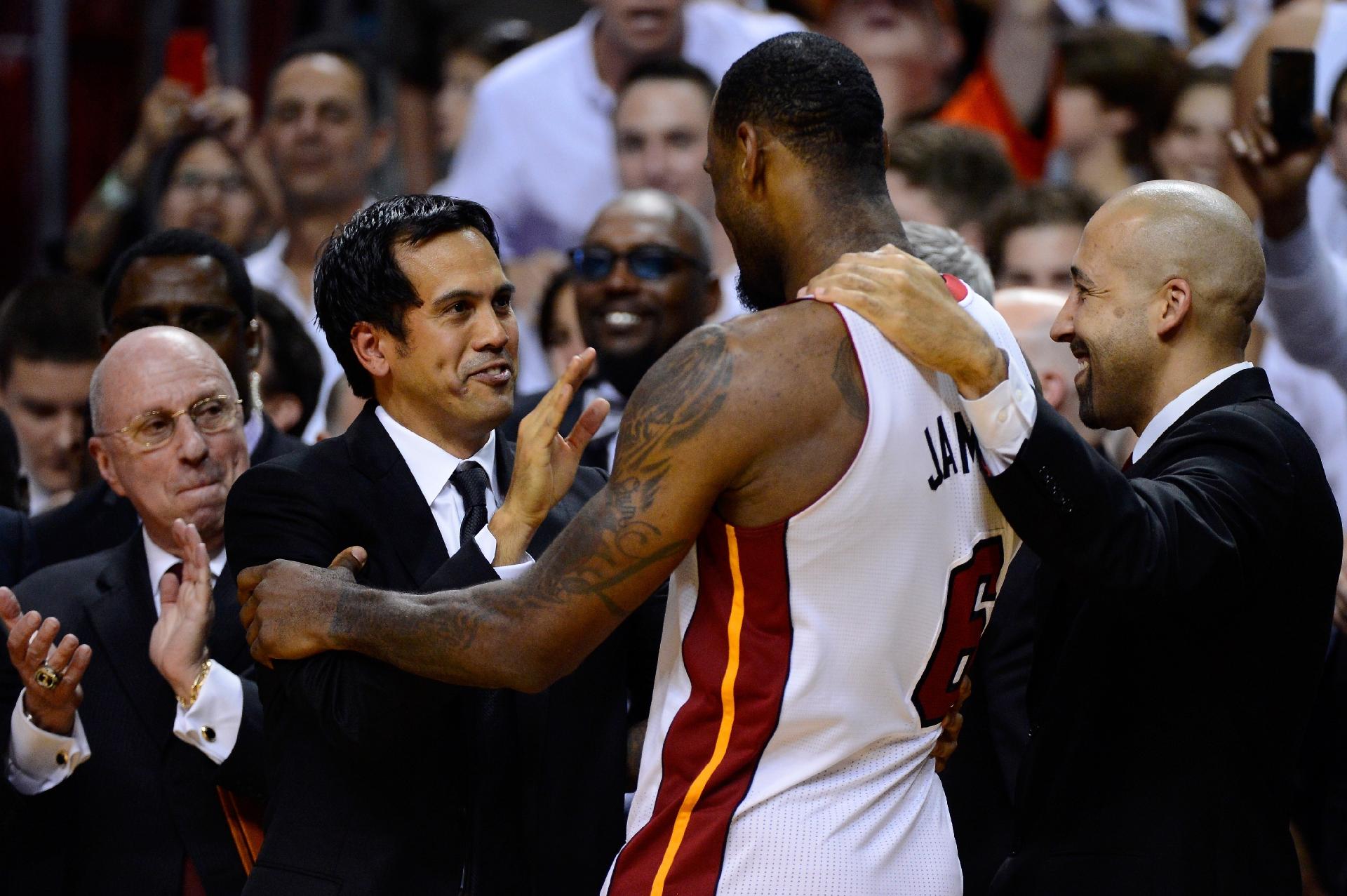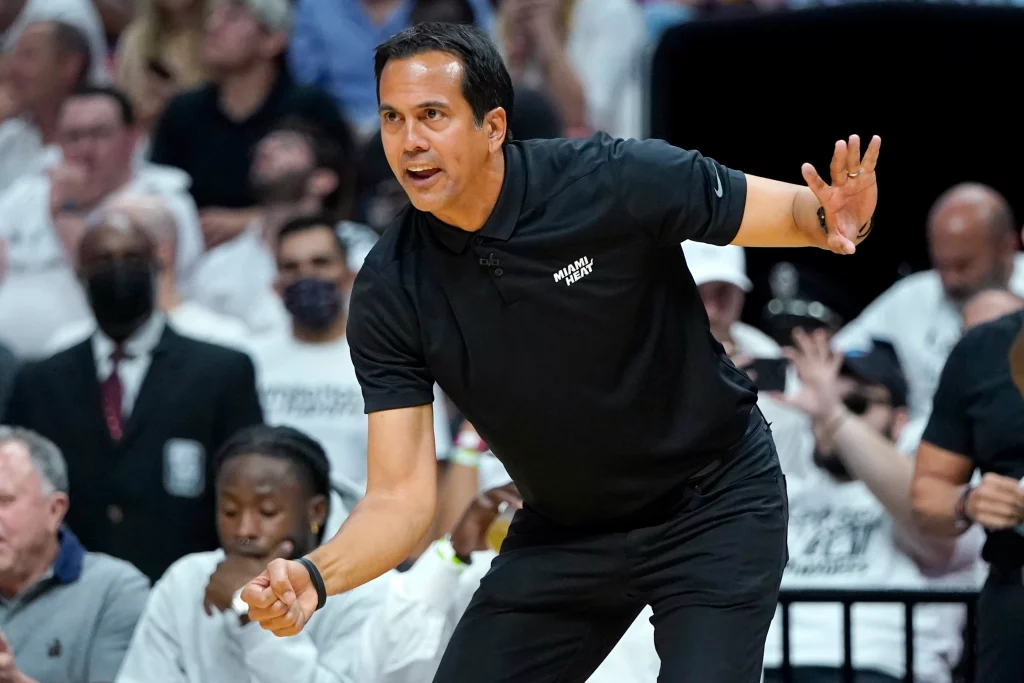Author: Monojit Mandal
In the ever-changing landscape of modern basketball, determining the characteristics of a good coach is a difficult task. However, when pressed for a solution, one term sums up the essence: “rigid flexibility”. It’s a contradiction that requires holding opposing notions at the same time, knowing that both can be true. Becoming extremely rigid as a “players’ coach” risks becoming a double-edged sword, while being highly adaptable as a “players’ coach” risks underperforming, as seen in the tragic departure of the head coach of a talented Philadelphia 76ers team.
Finding a leader who combines philosophical wisdom with humility, who possesses the architectural skills to adjust strategies quickly and who understands the importance of accommodating individual needs, like Erik Spoelstra of the Miami Heat, a 28-year employee who embodies this potent coaching cocktail, is key to achieving the delicate balance.
Erik Spoelstra comes from the isolated barrens near Buffalo in upstate New York, and his upbringing has shaped his personality. His roots are similar to those of his mentor, Pat Riley, who came from the industrial city of Schenectady. Coach Spoelstra’s approach exemplifies Riley’s ideology to the full. Riley’s “Culture of Heat”, inspired by his time with the 1980s Lakers team that finally turned on him, focused primarily on his personal character. Riley was an extravagant figure, dressed in Armani on the sidelines, always ready to claim credit, as any Knicks fan from the early and mid-90s can confirm.
At the same time, he acted like an autocratic ruler, expecting total devotion from his teams without offering anything in return. Spoelstra, on the other hand, is a passionate believer, who has taken the positive components of Riley’s fitness tests and body fat measurements and turned them into a religion of sacrifice that he not only expects from his players, but also practices.

We often focus on the wrong parts of Spoelstra’s personality. His obituary will almost certainly highlight his achievement as the first Asian-American coach to win a title in all four major American sports. However, it is much more than the result of nepotism. With a well-connected family and pedigree, his pedigree is strongly established in basketball. Jon Spoelstra, a Notre Dame alumnus, began his career in marketing with the Buffalo Braves, before becoming general manager of the Trail Blazers for a decade. Finally, he served as president of the Nets in the 1990s.
Watson, Jon and Erik’s grandfather, was known for his “hot-tempered” and rude character. Watson was a college basketball star and a career journalist. Erik Spoelstra, a former video intern who evolved into a Euroball player coach and eventually succeeded Pat Riley, is the culmination of their combined efforts. A video of him working at the Miami Arena in its early days exemplifies his undying passion and commitment.

When analyzing Spoelstra’s mandate, the focus is often on his consistency and persistent presence in maintaining the famous HEAT CULTURE. However, like his acclaimed colleague Greg Popovich, what really sets Spoelstra apart is his ability to reinvent himself as a coach every year. As a young coach in charge of the first genuine superteam, he demonstrated exceptional game management skills. He also showed a talent for transforming a heterogeneous group of players, exemplified by the fiery striker Dion Waiters, into a cohesive team capable of producing spectacular results. Spoelstra’s skill as a coach stems from his ability to adapt and overcome obstacles. He has a special ability to create the best.


